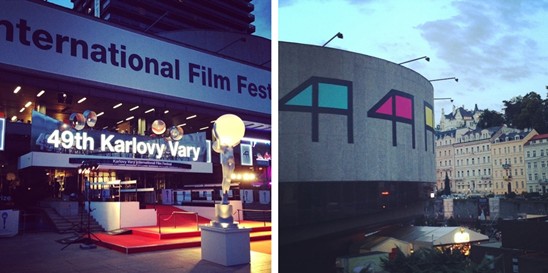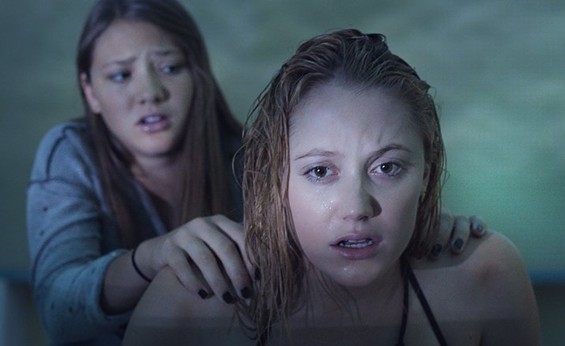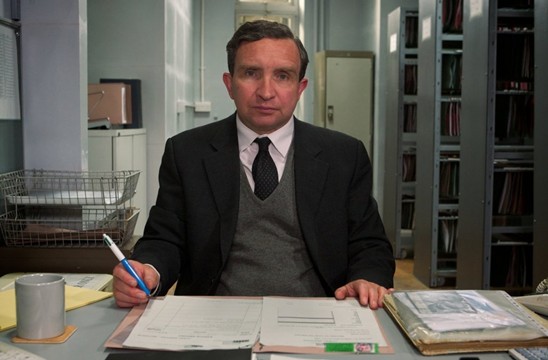This being my first time at the Karlovy Vary Film Festival, and indeed my first time in the Czech Republic, I’m unsure what to expect from my time here. Many of the films are unknown to me and I haven’t spoken with anyone who’s been to the festival, so I’m excited and just a little apprehensive about what’s to come.

I needn’t have worried, the festival organiser’s really look after their invited guests, and after my transfer from the airport I’m greeted by my assigned guide (Hugo, a lovely guy from Prague) who can’t help me enough, explaining where to collect my tickets, how the festival works and walking me halfway to my hotel. This is a theme that runs through the whole festival, the staff, volunteers and security are incredibly helpful and courteous. Karlovy Vary seems to me a serious film festival that doesn’t take itself too seriously; everything is done with a certain amount of modesty, charm and humour. You can see this in the short introductory films before the features, which show a range of world cinema stars trying to work out what to do with their KV awards, and especially watching the man who removes the mic stand after each speaker on the main hall (he receives a round of applause, and then doffs his cap to the audience…every time).
Having not had time to arrange tickets for the evenings screenings, my first film is an industry screening of Cannes ‘buzz film’ It Follows.

Written and directed by American director David Robert Mitchell (The Myth of the American Sleepover), this indie horror set in suburban Michigan tells of a teenage girl, Ray, who after sleeping with her boyfriend is haunted by a nightmarish figure who continuously follows her wherever she runs. This ‘curse’ is only passed on when the victim sleeps with somebody else. The premise may sound similar to past horror films, yet It Follows manages to remain unique within the genre. Slow paced and low-key, with muted colours and an atmospheric synth score that helps lend it a real sense of melancholy, the film explores themes of sexuality and loneliness whilst still delivering shocks throughout. It loses its way a little over two-thirds of the way in, but this doesn’t detract from what is ultimately a very interesting and original film for the modern horror fan.
Next up is the film I’m most looking forward to at the festival, Peter Strickland’s (Katalin Varga, Berberian Sound Studio) & Nick Fenton’s concert film Bjork: Biophillia Live. A huge fan of the Icelandic musician/artist (I saw the premiere of the Biophillia concert at Manchester International Festival), and also of Strickland’s films, I worried if I could actually remain objective about this perfect marriage. The film is actually much like the majority of Bjork’s albums, featuring moments of brilliance, frustration, beauty and disbelief. It’s a surprisingly straight but very intimate concert film, employing multiple cameras around the round stage set-up, and as you’d expect the sound mix is superb.

The film is most successful when focusing purely on Bjork and the fantastic musicians (the version of One Day rearranged for just hang drums and her voice is a brilliant highlight). Ultimately, this is a film for fans of Bjork, as others may struggle with the more difficult material and song selection. That said, anyone that watches this will surely find it difficult not to appreciate one of the most unique creative forces working today. For Strickland, it’s an interesting departure, but I’m looking forward to his return to features.
On my journey from Prague to KV, I was accompanied in the car by director/producer Uberto Pasolini, whose film Still Life is screening here in the Grand Hall. Chatting with him about the films he’s worked on, from The Killing Fields to The Full Monty, and the current state of the British film landscape, I was struck by his modesty and humility, and so I was interested to see how his latest film reflected his personality and how it would play to a large audience. Still Life is a quiet film as the title may suggest, telling the uniquely British story of John May, a council employee in London whose job it is to investigate the deaths of and arrange funerals for the deceased with no family members to take care of matters.

Eddie Marsan carries the film (he is in almost every scene), as he gives a wonderfully restrained performance in a film that explores big themes (death, loneliness, love) by highlighting what,on the surface at least, is a very small story. Judging by the reaction of the crowd, this is clearly a film that’s loved by festival audiences, so I’m hoping it gets a UK release.

